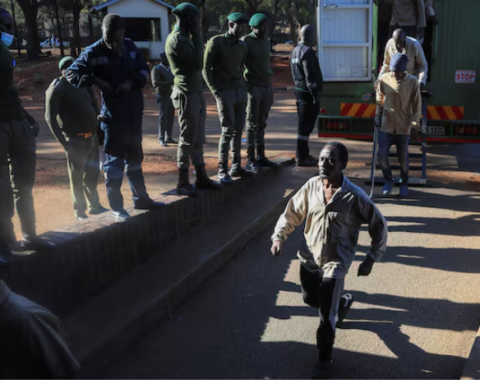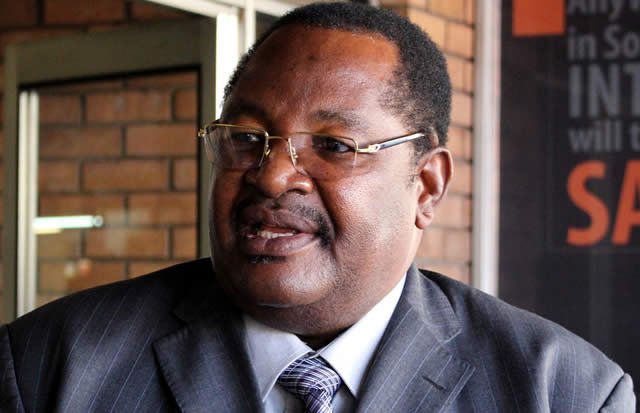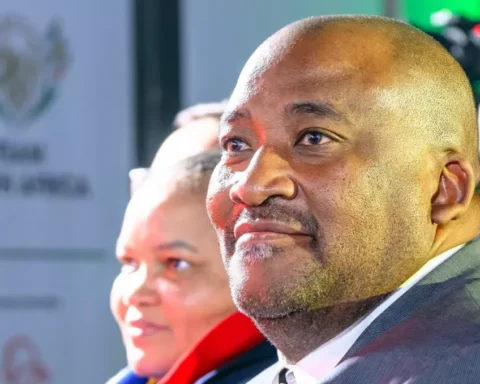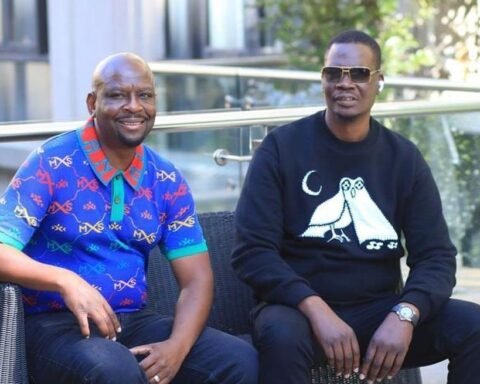Tension is rising in Bulawayo some as residents outraged by the harassment of Chief Ndiweni planed a solidarity march to show support for Chief Ndiweni.
In what has been seen as an intimidatory move the Zimbabwe Republic Police riot squad surrounded the Joshua Nkomo statue at the Bulawayo CBD after news of a planned Chief Nhlanhlayamangwe Ndiweni Solidarity March.
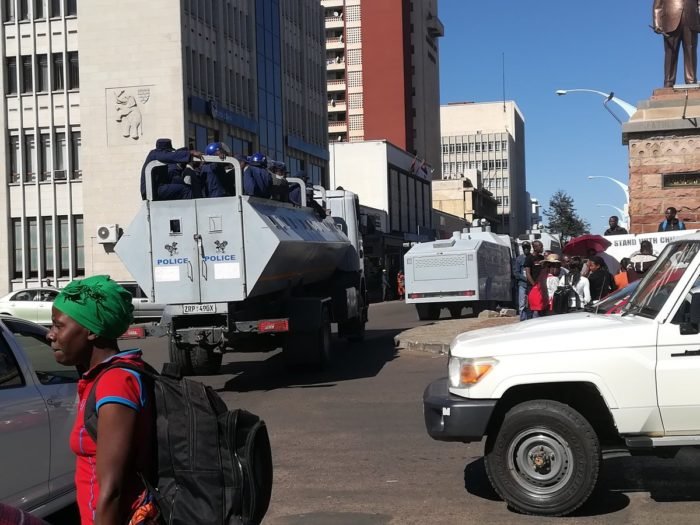
Photographic and video evidence has imaged proving that the anti riot police have been dispatched to intimidate the citizens and scare them away.
However, some brave residents have refused to be intimidated and have gathered to express their displeasure at the way the Chief has been treated particularly by the Zanu PF government who deployed youths to harass Chief Ndiweni.
Earlier this week Deputy Defence Minister Victor Matemadanda, also the secretary general of the war veterans’ association, said the chief was a “national security threat” for his constant criticism of President Emmerson Mnangagwa’s government.
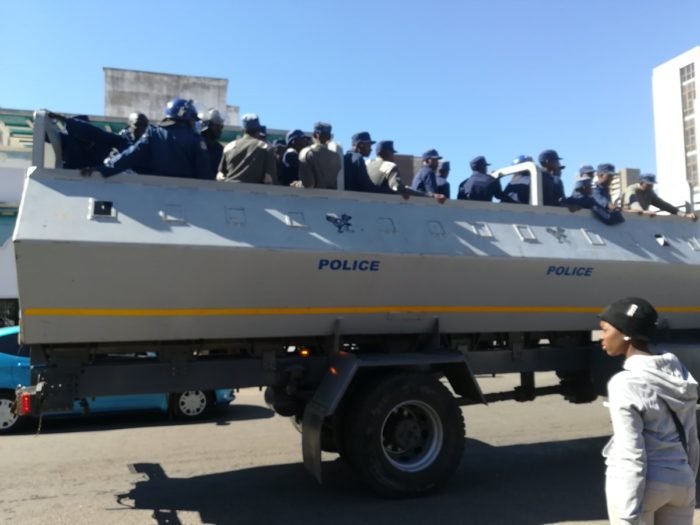
Matemadanda said Chief Ndiweni was “starting a fire that he is not going to be able to quench.”
By mid morning (Friday) the area around the statue of Joshua Nkomo was surrounded by anti-riot police in armoured vehicles.
Police had also deployed water tankers which are on standby to disperse people in case things escalate out of control.
Chief Ndiweni is fast becoming the voice of the people challenging the Zanu PF government and its corruption.
Many now view him as the long awaited leader in Matebeleland after the stalwarts and icons such as Joshua Nkomo and Dumiso Dabengwa who once held the touch and represented the people of Matebeleland.
Chief Ndiweni, was British-educated and lived in England for over two decades, took over from his father, the paramount Ndebele Chief Khayisa Ndiweni who died in 2010.
Chief Ndiweni maintains he is not intimidated by the threats and physical harassment, which he says exposes the Zanu PF government’s poor democratic credentials.
“At the end of the day, we have to ask the question and get an answer: are we living in a democracy? Fact is if a traditional leader says things you don’t find comfortable, you don’t use instruments of state to assault and threaten him. By any tradition, that crosses the mark; the minute you do that you are not a government in my eyes,” Ndiweni said.
“I will continue saying these things because we have come to a situation whereby the country is on the floor. Do we sit down and bear it, or do we stand up and show them the door?”





